Have you ever thought your digital life without Google? The answer is a big no. When it’s search, it’s Google. But, this comes at cost. Looking for best alternative to google search engine? Go with our list of seven Best Google Alternative You Can Try in 2020.
Google stores our very personal data and information on its servers to customize the content it presents before us. Sometimes this extreme personalization turns into nuisance when users are flooded with too much of tailored content and ads targeting them.
Table of Contents
Top Google Alternative 2020
Literally, Google isn’t the last shot, when it comes to search engines. I can tell you about dozens of search engines that offer equally astounding search features and unbeatable privacy. Therefore, if you find it annoying and irking to be chased by Google wherever you go, you can go with our list of best alternative to google search engine right here.
1. DuckDuckGo
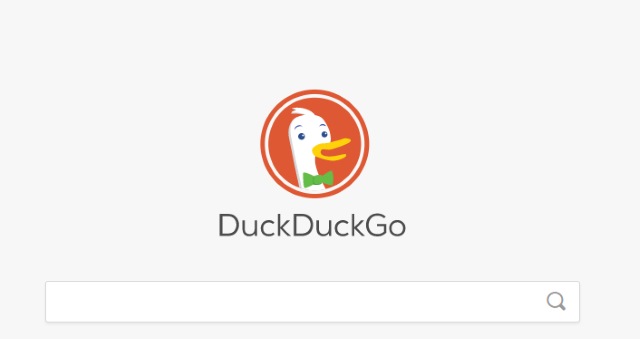
If privacy is something that matters you the most, DuckDuckGo is for you. The ultimate privacy it offers makes it the best alternative google search engine. Unlike Google, DuckDuckGo doesn’t track you online. This means you won’t see awkward ads and tailored content following you wherever you navigate.
It has quickly gained popularity because of the user privacy it offers. The website never tracks you or your online activities which means there are no ads following you.
The search engine comes with a clean and tidy user interface and allows users to bring search results from noted search engines like Yahoo and Yandex. Adding DuckDuckGo extension to your browser keeps your activities private.
Besides having all the standard features of a search engine, DuckDuckGo offers a unique ‘Bangs’ feature that allows searchers to search sites such as Amazon, Wikipedia, or YouTube right from the interface. All they need is to start their search query with an exclamation mark! (e.g. !a, !w, !facebook).
2. Bing:
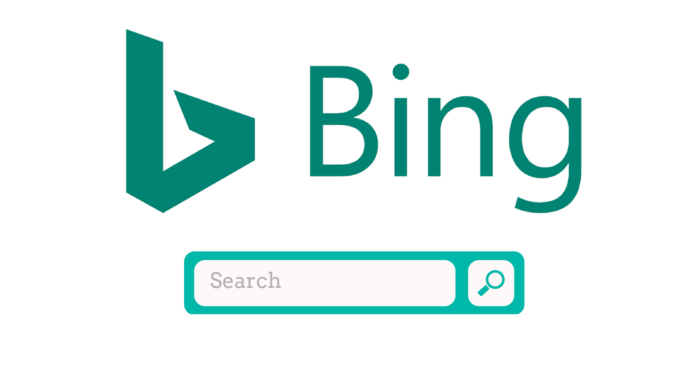
Bing is the second most used best alternative to google search. The Microsoft owned search engine offers a multitude of search tools to offer awesome user experience to searchers. Yahoo powers its search results and it’s known for its ever-changing background displaying beautiful pictures of animals, places and more.
This best alternative to google displays a beautiful grid of large thumbnails for video search results. On hovering over, the thumbnail offers a preview plays the video on the same page with a single click. Besides search specific abilities including conversion, translation and spell check tools, Bing offers its app for iOS and Android apps stores.
3. Yahoo:

Long before Google, Yahoo ruled the search ecosystem as #1 search engine. Even today, the #2 search giant Yahoo has a huge chunk of user base using the platform for their queries. Yahoo is unequivocally the top alternative to Google search engine.
Besides standard search results, Yahoo has a lot to offer. This best alternative to google search engine offers multiple services from a single interface. The search engine acts a news aggregator that brings breaking news, headlines and in-depth analysis of events from across the world. The platform also offers an email service, online shopping, online games and a travel directory.
This popular alternative search engines to Google supports 38 languages and is currently the default search engine for Mozilla Firefox. After its integration with Flickr, Yahoo has started displaying better image results as well. Last, but not the least, Yahoo deserves an applause when it comes to respect user privacy.
4. Qwant:
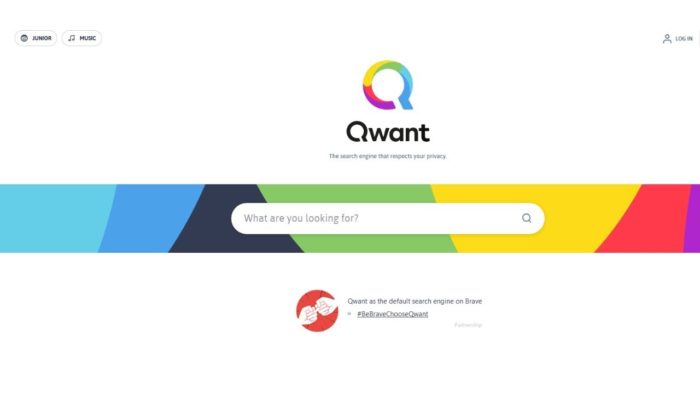 Qwant is a France based search engine that claims to aim at searcher’s privacy. This is another from the list of Google search alternatives that doesn’t track user’s record or manipulate searcher’s personal data for ad-targeting.
Qwant is a France based search engine that claims to aim at searcher’s privacy. This is another from the list of Google search alternatives that doesn’t track user’s record or manipulate searcher’s personal data for ad-targeting.
Qwant comes with an elegant and eye catching user interface highlighting trending topics, news stories on its homepage in a very readable format. Search results on the search engine are displayed under three categories: Web, News, and Social. An AI powered music section is also there to help music geeks discover new music and lyrics.
Although, this Google Search alternative isn’t that powerful and feature packed, it’s preferred by a huge community of searchers for its privacy feature.
5. Swisscows:
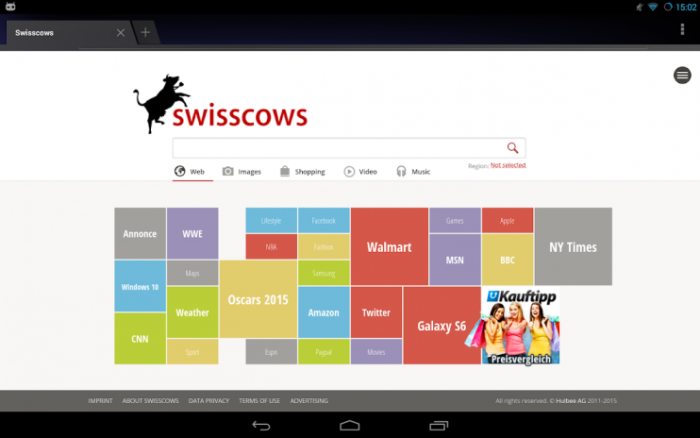
Swisscows is the next in the list of best alternative to google search engine. Like DuckDuckGo, privacy is the USP of this search engine. The search engine is a right choice for the parents wants to see child-appropriate search results for their kids.
The engine comes packed with a built-in filter that weeds out pornographic and violent content from the search results. Thanks to its privacy-focused approach, this Google search alternative doesn’t store any personal data, IP addresses or search queries. The search engine has its servers based in Switzerland.
Therefore, it’s bound to follow the strictest privacy laws in the world. The Swisscows, best non google search, is powered by Bing. The most interesting thing about Swisscows is that its ad system is solely targeted based on searcher’s query rather location.
6. Search Encrypt:

It’s another search engine in the list of best alternative to Google that respects searcher’s privacy. SearchEncrypt claims that it doesn’t track any identifiable information and puts in place local encryption to secure your searches.
The search engine is associated with many premiere search engines and network of search partners to display the search results. This best alternative to google search engine is visited by over 23 million visitors each day. It deletes user’s local browsing history automatically every 15 minutes of inactivity.
7. StartPage:
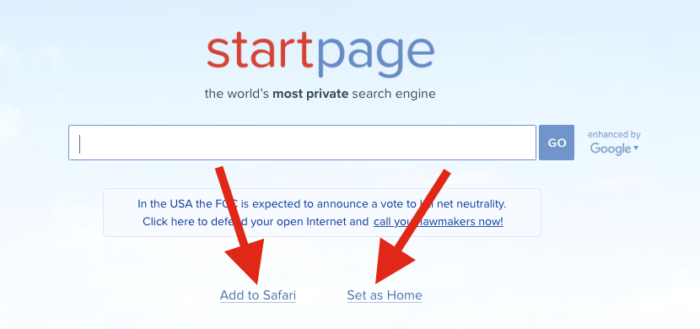
Other than Google, StartPage is another alternative search engines with its own set of search results. The search engine includes search results from Google without any user information tracking. StartPage isn’t merely a search engine but also offers proxy service to help browse websites safely and anonymously.
The search engine offers a custom URL generator to prevent cookies from being generated while user is browsing the internet.
Best Google Alternative 2020 : Conclusion
That’s all with the list of 7 best alternative to google search engine to choose in 2020. If you think that the list is missing a few popular alternate to Google, do tell us in comment box. Thank you for stopping by.
- Mavis Beacon Teaches Typing Software- All You Need to Know - July 3, 2024
- 10 Best Sites and Apps for Hindi to English Translation - June 29, 2024
- Which is Better Streamlabs or OBS? - March 11, 2024

